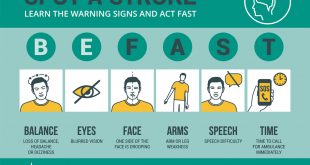By Heidi Smith, Contributor


But regular screening, beginning at age 45, is the key to preventing colorectal cancer, according to Jaime Baquero, M.D., of Gulf Coast Medical Group Gastroenterology in Venice. A member of the medical staff at Venice Regional Bayfront Health, Dr. Baquero is board-certified and fellowship-trained in gastroenterology and specializes in digestive health.
Q. The age guidance for starting screening colonoscopy used to be 50. Has that changed?
A. Recently experts have begun recommending patients at average risk start screening at 45. Colorectal cancer is the third leading cause of cancer deaths in the United States, according to the U.S. Preventive Services Task Force. The good news is that with early detection – through a colonoscopy – the survival rate dramatically increases. If colon cancer is detected before it spreads, the five-year survival rate is about 90 percent, according to the National Cancer Institute, but if not caught before the cancer spreads to other organs, the survival rate dips to about 10 percent.
Q. What is a colonoscopy?
A. A colonoscopy is a procedure that allows a doctor, usually a gastroenterologist, to see inside the colon and rectum. Used as either a screening test or a diagnostic tool, it can help your doctor investigate early signs of cancer in the colon and rectum, as well as help diagnose the causes of unexplained changes in bowel habits such as abdominal pain, rectal bleeding and weight loss. While you’re sedated, the doctor will insert a thin, long, flexible, lighted tube (a colonoscope) into your rectum and slowly guide it into your colon. The scope transmits an image of the inside of the colon onto a screen so the doctor can carefully examine the lining of the colon. A colonoscopy takes 30 to 60 minutes, but you will need to remain at your doctor’s facility for one to two hours until the sedative wears off.
Q. What happens if the doctor sees something abnormal?
A. If we see anything abnormal, such as a polyp (growth), it is painlessly removed at that time and later tested in a laboratory for signs of cancer. Since most colorectal cancer begins as a polyp, removing polyps early is an effective prevention method. We can also take samples from abnormal-looking tissues (a biopsy) so that suspicious areas can be examined.
Q. How often should you get a colonoscopy?
A. Screening for colon cancer should begin at age 45 for both men and women who have average risk for developing colorectal cancer. Your doctor can advise you on testing frequency, but industry guidelines suggest that a repeat screening be conducted every 10 years for adults with normal risk.
People at higher risk of developing colorectal cancer may need to be tested earlier than age 45 and more frequently, as determined by your doctor.
Q. Do I need to see a doctor before scheduling a colonoscopy?
A. Not necessarily. We now offer “open access colonoscopy” for healthy, age-appropriate patients. A member of our medical team interviews patients by phone and qualified patients can schedule a colonoscopy without a prior doctor’s visit. We can also supply the results to the patient the day of the procedure without a separate appointment. We’re working to streamline the process to make it easier for patients to get screened and to reduce health care costs.
Q. Is a colonoscopy covered by most health insurance plans?
A. Screening colonoscopy may be a covered wellness test under your insurance plan, and most plans cover a colonoscopy completely as a follow-up test or diagnostic tool. Check with your insurance provider.
Jaime Baquero, M.D., sees patients at Gulf Coast Medical Group Gastroenterology in Venice. To schedule an appointment, call (941) 213-5688.
Gulf Cost Medical Group
(941) 213-5688
GulfCoastGastro.com
 Southwest Florida's Health and Wellness Magazine Health and Wellness Articles
Southwest Florida's Health and Wellness Magazine Health and Wellness Articles

